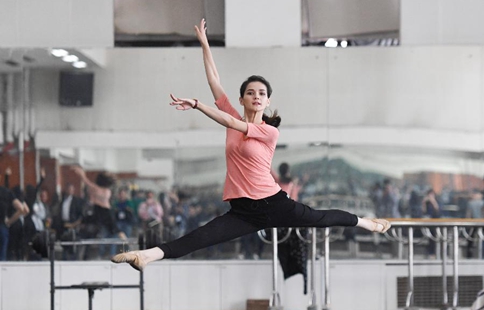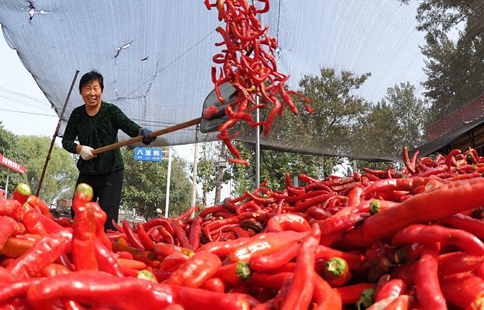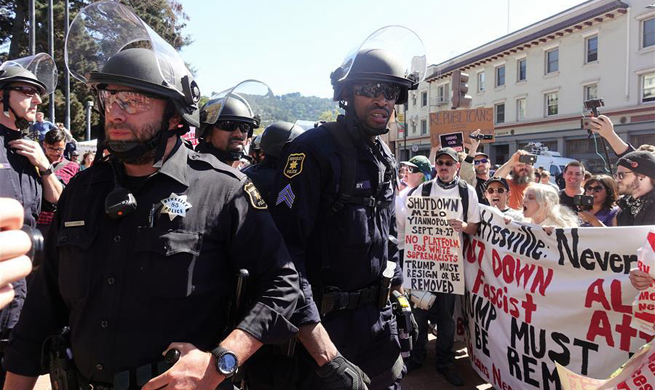BERLIN, Sept. 25 (Xinhua) -- The heavy electoral losses experienced by the German conservative sister parties Christian Democratic Union (CDU) and Christian Social Union (CSU) have caused a public spat over future of the long-standing electoral alliance, observers noted on Monday.
Representatives from both parties expressed a range of differing views on how Germany's conservatives should respond to the surge in voter support recorded by the right-wing populist Alternative for Germany (AfD).
Governor of Saxony-Anhalt Reiner Haseloff (CDU) urged the CDU/CSU to take the fears of Germans caused by the recent migrant wave seriously and advocated for a corresponding lurch to the political right.
Haseloff said national responsibilities such as securing borders had been lifted to a European level without ensuring that Brussels was able to handle the task. As a consequence, Germany would now have to make a greater effort toward ensuring the protection of the European Union's external borders.
Bavarian governor Horst Seehofer (CSU) said his party had suffered from an "open flank" on the political right due to Chancellor Merkel's perceived softness on migration.
Seehofer was supported by CSU Secretary General Andreas Scheuer who called on the CDU sister party to hold a "debate on future orientation" over the conservative profile of both parties in order to win back AfD supporters.
In contrast, such arguments were rejected by governor of Schleswig-Holstein Daniel Guenther (CDU), as well as CDU vice-president Julia Kloeckner. While both politicians also urged the CDU/CSU to make a more persuasive political offer to former voters, they voiced their opposition to adopting more right-wing positions towards this end.
Guenther noted that the regional CDU branches which had clearly-supported Angela Merkel's (CDU) more moderate stance on migration lost fewer votes than the CSU which has clashed with the chancellor for months over its perceived need for fixed limit on the number of asylum seekers admitted to Germany each year.
Guenther's concerns were echoed by Kloeckner, who said she was "sure that we do not need a lurch to the right."
The CDU/CSU achieved a combined 33 percent of the vote in Sunday's federal elections, down from 41.5 percent in 2013. The committees of both parties are holding consultations over their next steps in their respective party headquarters in Berlin and Munich on Monday.
Seeing as the SPD has announced its intention to enter the opposition rather than forming another coalition government, the only seemingly-realistic remaining option for Merkel to form a new government is a so-called "Jamaica" coalition (named after the parties' official colors) between the CDU/CSU, Free Democratic Party (FDP) and Greens (Gruene).
Governor Guenther, who already leads a regional government composed of the same actors in Schleswig-Holstein, expressed confidence that such an arrangement could benefit all parties involved.
While sparring over what future pitch to make to voters, neither CDU nor CSU politicians wanted to engage in a leadership debate. Even Haseloff, who openly attacked the incumbent Chancellor during the refugee crisis, said that the CDU/CSU "owed to Angela Merkel" that it was currently was arguing over what kind of government policies to embrace.

















